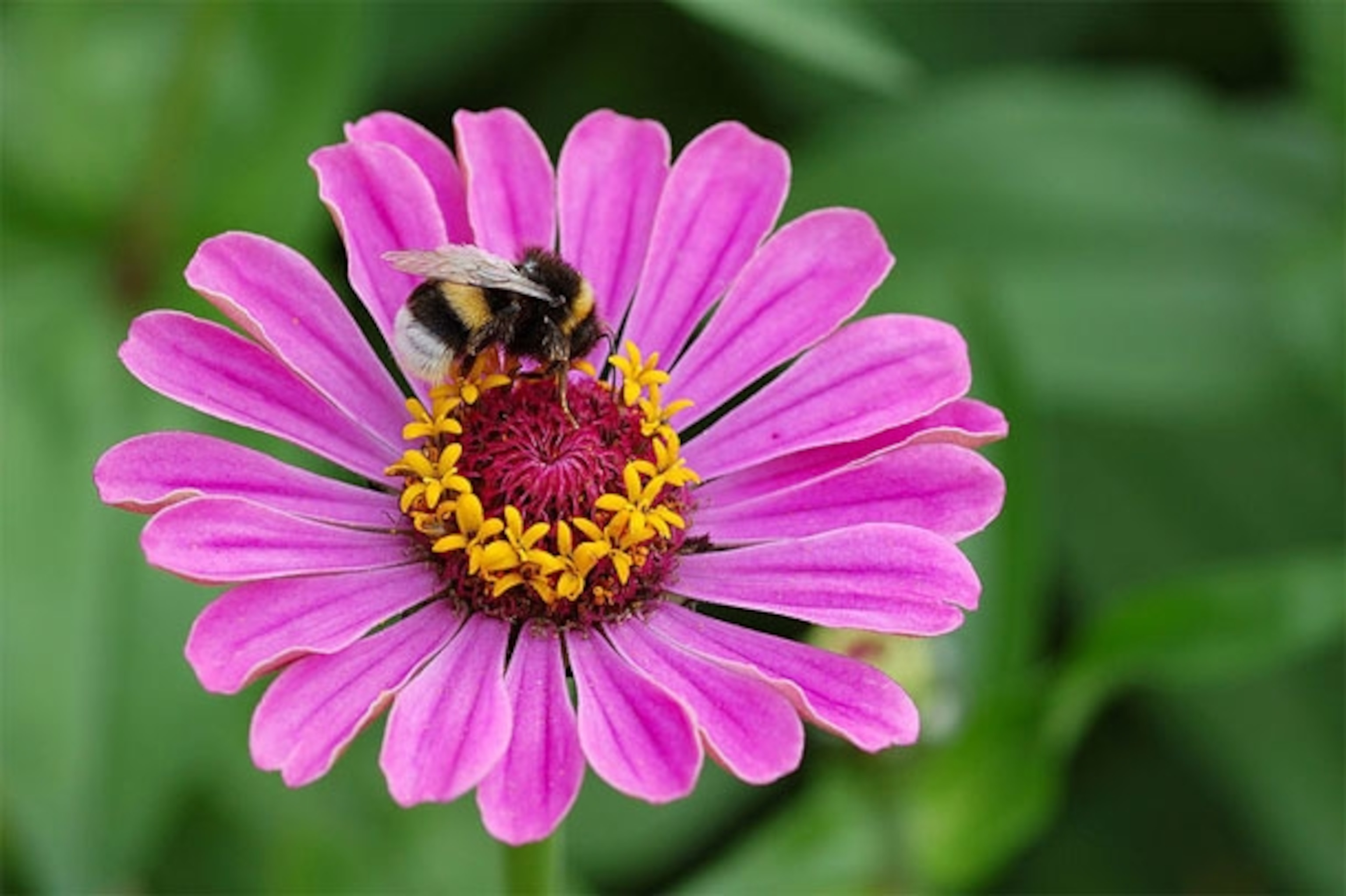
Faecal diet gives bumblebees defensive bacteria that protect them from parasites
Bumblebees begin their adult lives by eating their sisters’ faeces. After many months as helpless, hungry larvae, they spin a silken cocoon and transform their bodies. When they emerge, ready to face the world, they get mouthfuls of poo. It may not sound like an auspicious start, but it’s essential. The faeces contain special bacteria that act as part of the bee’s immune system, protecting it from an incredibly dangerous parasite.
Gut bacteria are important partners for many animals. We humans have up to 100 trillion microbes in our bowels, and this “microbiota” outnumbers our own cells by ten to one. They act like a hidden, writhing organ. They break down our food. They influence our behaviour. And they safeguard our health by crowding out other bacteria that could cause disease. It seems that gut bacteria play a similar role in bumblebees.
Different species carry their own unique microbiota. The social bees, both honey and bumble, have a distinctive set that consists of surprisingly few species. These bacteria aren’t found in solitary bees, so they seem to be tied to communal living.
Bumblebee larvae have their own gut bacteria, but as they metamorphose into adults, their bodies are drastically reorganised. Their guts grow from scratch, and their old ones are completely replaced and shed. In their cocoons, their new bowels are completely sterilised by a potent cocktail of antibiotics. This means that they emerge into adulthood without a trace of any larval infections, but it also means that they need to recolonise their newly built guts. Their do that by munching the bacteria-rich faeces of their sisters.
Hauke Koch and Paul Schmid-Hempel from the Swiss Federal Institute of Technology have found that these gut bacteria act as a transmissible immune system that supplements the bees’ own defences. They protect bumblebees from Crithidia bombi, a virulent gut parasite that’s related to the ones that cause sleeping sickness and Chagas disease in humans. It passes from bee to bee and they can severely affect the health of a colony. Infected workers no longer forage properly, and infected queens don’t raise as many young.
Koch and Schmid-Hempel found that bumblebees suffered from much stronger Crithidia infections if they emerged from their pupae in sterile environments. Without the chance to eat the colony faeces, and inoculate themselves with the right microbiota, they built up about six times as much of the parasite as bees that had the right defences. Only bees that ate faeces were protected.
Koch and Schmid-Hempel confirmed these results by looking in the guts of wild bees. They found that one group of gut bacteria – the Betaproteobacteria – was an especially potent defence against Crithidia. When their numbers were high, the parasite was largely absent.
This is just one example of bacteria protecting insects from other infections. A similar trick works in humans. Alexander Khoruts, a doctor from the University of Minnesota, has managed to treat patients with severe Clostridium difficile gut infectionstreat patients with severe Clostridium difficile gut infectionstreat patients with severe Clostridium difficile gut infections by giving them faecal transplants. It’s the human equivalent of the bumblebees’ unsavoury diet. It transfers defensive bacteria from one individual to another.
Reference: Koch and Schmid-Hempel. 2011. Socially transmitted gut microbiota protect bumblebees against an intestinal parasite. PNAS http://dx.doiorg/10.1073/pnas.1110474108